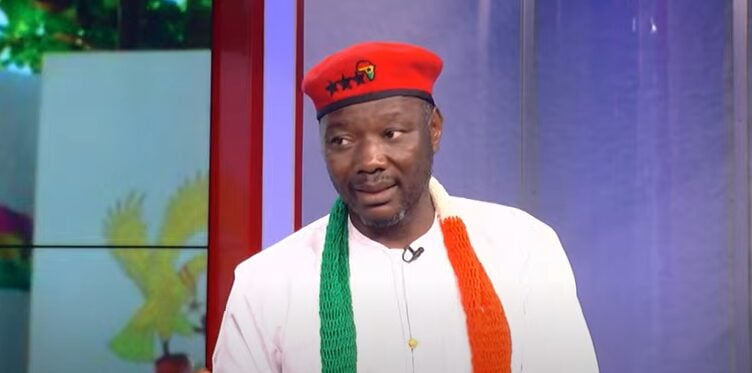The Akwatia by-election has become a focal point of intense political activity, drawing significant attention due to its potential implications for the upcoming 2028 general election. Bernard Anbataayela Mornah, a prominent member of the People’s National Convention (PNC), has expressed concerns about the alleged involvement of state actors in the election campaign, specifically highlighting the extensive presence and activities of officials from the Accra Metropolitan Assembly (AMA) and various state institutions. Mornah’s assertions paint a picture of a concerted effort to mobilize support for the National Democratic Congress (NDC), raising questions about the fairness and transparency of the electoral process.
Mornah’s skepticism about a potential NDC loss stems from his observations of the sheer number of state officials present in the constituency, coupled with their alleged engagement in activities that suggest active campaigning for the NDC. He contends that the presence of these officials and their involvement go beyond mere observation and extend to actively mobilizing voters and potentially influencing their choices. This alleged mobilization raises concerns about the misuse of public resources and the potential for undue influence on the electoral outcome. While official statements deny any vote buying, Mornah’s claims suggest that the activities on the ground point to a different reality, with inducements and spending being deployed to sway voters towards the NDC.
The PNC leader’s assertions extend beyond the presence of AMA officials, encompassing chief executives from various state institutions. He alleges that these officials are actively engaged in the campaign, seemingly diverting their attention from their official duties to engage in political activities. This alleged involvement of state actors raises concerns about the blurring of lines between official responsibilities and political campaigning, particularly given the potential for such actions to influence the election’s outcome. Mornah questions whether the New Patriotic Party (NPP), the governing party, can match the level of resources being deployed by the NDC, highlighting the apparent asymmetry in campaign resources and potential implications for a fair contest.
The alleged scale of state-sponsored mobilization in Akwatia, according to Mornah, is unprecedented. He depicts a scenario where public officials are actively involved in covert campaign roles, rather than focusing on their official responsibilities. This alleged diversion of resources and personnel for political purposes raises questions about the proper use of public funds and the potential for such activities to undermine the integrity of the electoral process. The concerns raised by Mornah highlight the crucial importance of ensuring a level playing field for all parties involved in the election, and the need for transparency and accountability in the conduct of public officials during electoral processes.
The Akwatia by-election has become a proxy battleground for the NDC and NPP, with both parties viewing the outcome as a critical indicator of their relative political strength ahead of the 2028 general election. The intense focus on this by-election underscores the high stakes involved and the perceived significance of winning the seat. The allegations of state involvement and the deployment of significant resources by the NDC, as claimed by Mornah, further intensify the scrutiny on the electoral process and raise concerns about the fairness of the competition.
The concerns voiced by Mornah highlight the need for vigilance in safeguarding the integrity of the electoral process. The alleged involvement of state actors in the Akwatia by-election underscores the importance of maintaining a clear separation between official duties and political campaigning, ensuring a level playing field for all parties, and promoting transparency and accountability in electoral processes. The outcome of the Akwatia by-election will undoubtedly be closely analyzed, not only for its immediate political implications but also for the broader questions it raises about the conduct of elections and the role of state actors in the democratic process.














